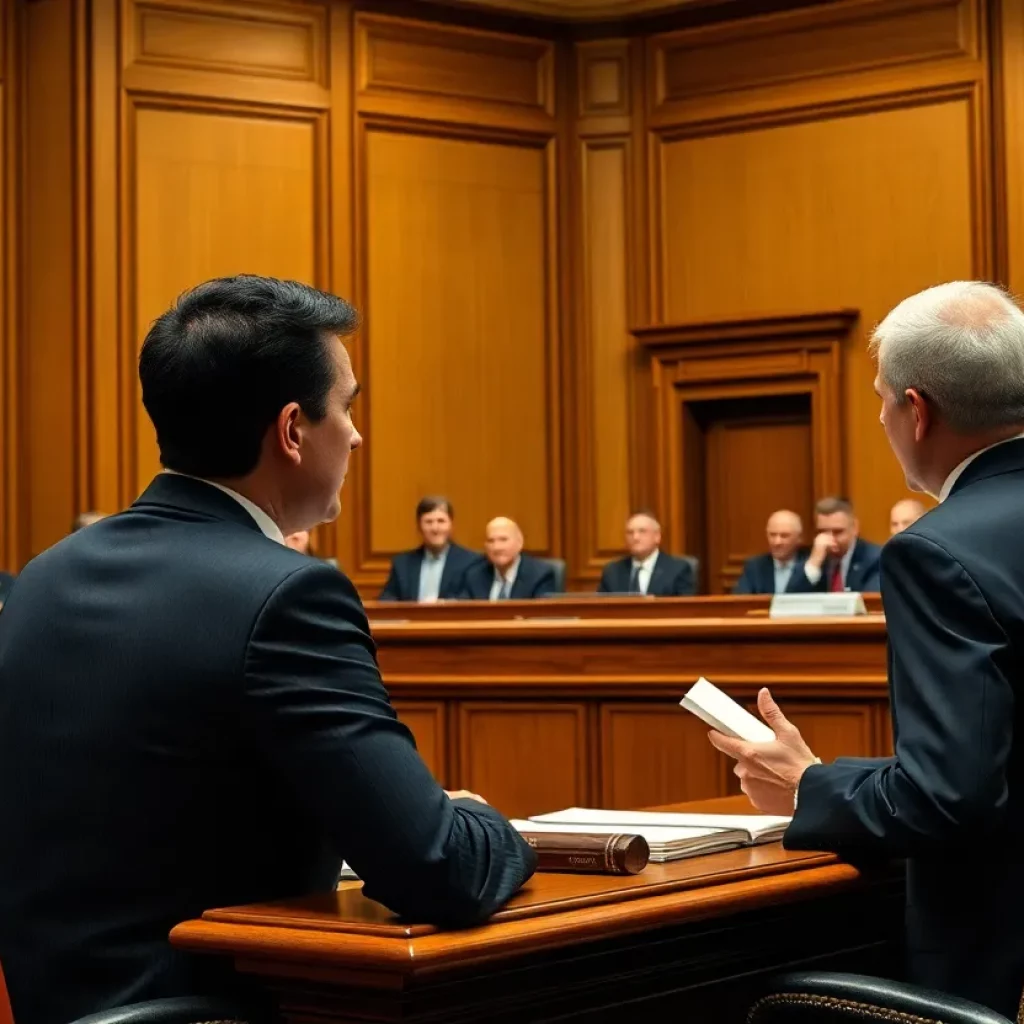News Summary
The Supreme Court’s recent 5-4 decision in Medical Marijuana, Inc. v. Horn signifies a pivotal shift in the legal landscape, allowing plaintiffs to claim RICO damages for economic losses linked to personal injuries. This ruling challenges previous limitations and raises critical questions about personal injury claims as lawyers prepare for potentially increased litigation. Notably, industries like pharmaceuticals and consumer products may face increased pressures from plaintiffs now empowered by this ruling, creating an evolving legal environment that requires careful navigation.
The Supreme Court’s Groundbreaking Ruling on RICO: A Game Changer for Personal Injury Claims
The legal landscape is undergoing a seismic shift following the Supreme Court’s narrow 5-4 decision in *Medical Marijuana, Inc. v. Horn*. This ruling opens the doors for plaintiffs to pursue RICO damages for business and property losses linked to personal injuries, a significant change that could transform how legal claims are structured and adjudicated.
A Striking Victory for Douglas Horn
The case centers around Douglas Horn, a truck driver whose career was derailed due to a positive drug test for THC from a CBD product he ingested in good faith. Horn alleged that the manufacturer had misled consumers through false advertising and engaged in racketeering activities that resulted in his job loss. Initially, the lower court ruled against him, aligning with prior decisions from the Sixth, Seventh, and Eleventh Circuits, which maintained that RICO does not allow recovery for economic losses connected to personal injuries.
A Narrow Margin with Significant Implications
This Supreme Court ruling resolves a long-standing divide among federal circuits regarding the applicability of RICO to cases involving personal injury-related economic losses. Justice Amy Coney Barrett, in her majority opinion, argued that the key aspect of RICO’s civil remedy is focused on the nature of harm rather than its source. The Court provided a pertinent analogy: while a business owner cannot claim damages for pain and suffering from an assault, they can still seek losses incurred due to business disruption stemming from those injuries.
What This Means for Future Claims
The implication of this ruling is monumental. By removing the categorical barrier to recovering economic losses from personal injury, the decision aligns the legal framework closer to the broader interpretations upheld by the Second and Ninth Circuits. However, what remains unresolved is whether Horn’s job loss qualifies as an injury to business. This ambiguity opens the door for subsequent cases to grapple with the evolving definitions of economic injury under RICO.
Impact on Key Industries
Industries such as pharmaceuticals and consumer products should brace for impact. Plaintiffs are now positioned to file RICO claims more readily, linking their personal injuries to economic damages. The implications of civil RICO actions include treble damages and the associated reputational risks for companies which can result in increased pressure to settle claims that may have previously seemed implausible.
The Path Forward for Litigants
Despite the favorable shift for plaintiffs, pursuing a RICO claim remains no small feat. The statute requires rigorous proof of direct causation and a pattern of racketeering activity, thus maintaining high hurdles for potential claimants. Legal experts advise that both plaintiffs and defendants will need to adapt their strategies to navigate the complexities of this newly altered legal terrain.
Judiciary vs. Congress: The Future of RICO
Justice Kavanaugh, dissenting, warned that this ruling may lead to an influx of personal injury suits under RICO, complicating an already intricate legal landscape. This tension highlights the need for clarity regarding RICO’s application, a matter the Court suggested should be addressed by Congress rather than through judicial interpretation. Originally designed to target organized crime, RICO has significantly broadened to encompass a wider spectrum of commercial disputes.
Final Thoughts
The ruling in Horn has significant ramifications for civil litigation, increasing both financial stakes and strategic considerations in personal injury cases linked to economic harms. As this new chapter unfolds, legal professionals must remain vigilant and adaptive, ensuring their practices align with the shifting dynamics of RICO-related claims. In the world of litigation, staying ahead of these developments may be the key to success.
Deeper Dive: News & Info About This Topic
HERE Resources
Lawyer News: Taylor Swift Subpoenaed in Legal Feud
Benton Accident & Injury Lawyers: Your Dallas Personal Injury Lawyers
Jones Walker Welcomes New Lawyer to Litigation Team
Patrick A. Salvi II: Leading the Charge in Personal Injury Law
U.S. Supreme Court Expands RICO Claims: A New Era for Lawyers
Supreme Court’s RICO Ruling Opens New Path for Lawyers
Supreme Court Ruling Expands RICO for Lawyers
Additional Resources
- SCOTUSblog: Medical Marijuana, Inc. v. Horn
- Wikipedia: Racketeer Influenced and Corrupt Organizations Act
- Law360: Supreme Court Affirms RICO Claims for Business Losses Linked to Injury
- Encyclopedia Britannica: Racketeer Influenced and Corrupt Organizations Act
- Google Search: Medical Marijuana Inc v Horn
Author: STAFF HERE CHARLESTON
The CHARLESTON STAFF WRITER represents the experienced team at HEREcharleston.com, your go-to source for actionable local news and information in Charleston, Charleston County, and beyond. Specializing in "news you can use," we cover essential topics like product reviews for personal and business needs, local business directories, politics, real estate trends, neighborhood insights, and state news affecting the area—with deep expertise drawn from years of dedicated reporting and strong community input, including local press releases and business updates. We deliver top reporting on high-value events such as the Spoleto Festival USA, Charleston Wine + Food Festival, and the MOJA Festival. Our coverage extends to key organizations like the Charleston Metro Chamber of Commerce and the Charleston Museum, plus leading businesses in tourism and maritime industries that power the local economy such as South Carolina Ports Authority and the Charleston Visitor Center. As part of the broader HERE network, including HEREaiken.com, HEREbeaufort.com, HEREchapin.com, HEREcharleston.com, HEREclinton.com, HEREcolumbia.com, HEREgeorgetown.com, HEREgreenwood.com, HEREgreenville.com, HEREhiltonhead.com, HEREirmo.com, HEREmyrtlebeach.com, HEREnewberry.com, HERErockhill.com, HEREspartanburg.com, HEREaustin.com, HEREcollegestation.com, HEREdallas.com, HEREhouston.com, and HEREsanantonio.com, we provide comprehensive, credible insights into South Carolina's dynamic landscape.










